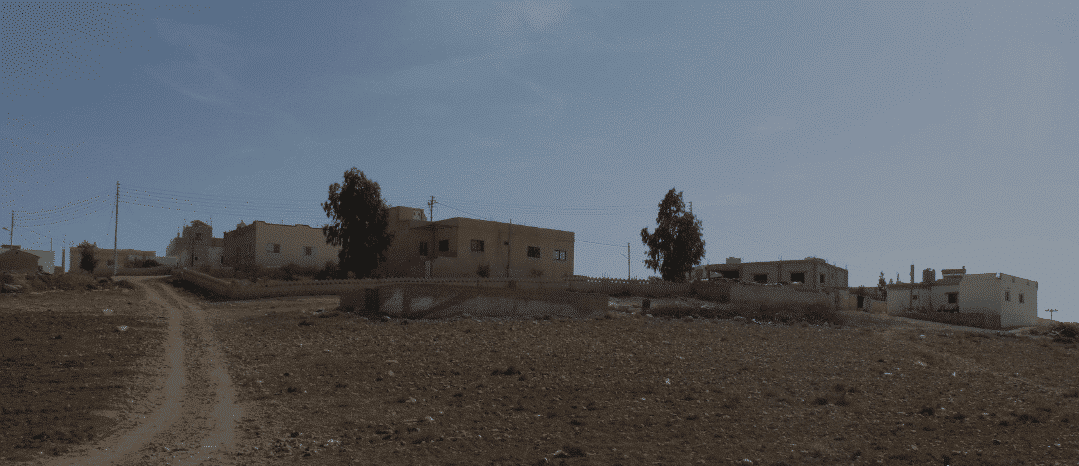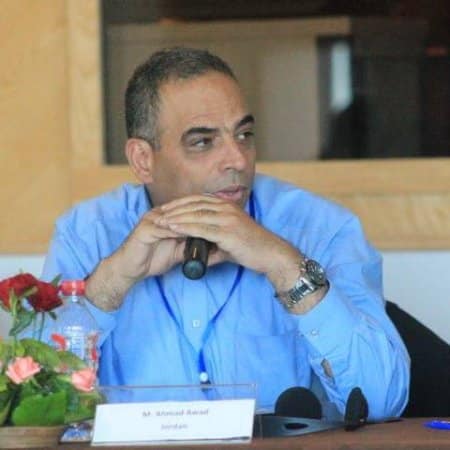The Phenix Center is an independent think tank in Amman, Jordan that promotes workers rights and carries out policy analysis in order to build a sustainable development model based on principles of democracy and human rights. Our organization and other civil society organizations play a crucial role in promoting freedoms, rights and democracy in Jordan’s development.

Houses near power plant in al Manakher. Credit: BankWatch
Today, international financial institutions are beginning to fund more renewable energy, agriculture, and other development projects in my country. The European Bank for Reconstruction and Development in particular is looking to increase their investments here and in the countries in the region viewed as more stable and favourable for investment.
However, after a period of increasing public freedoms on the wave of the Arab spring and some progress toward democracy, Jordan has taken several steps backwards in recent years in terms of freedom of expression and association and the space for civil society organizations. Successive governments have started to limit public freedoms under the banner of security and fighting terrorism. There is a double discourse wherein the government emphasizes in its statements that confronting extremism and terrorism implies the promotion of human rights of all citizens. In practice, however, several policies and drafted several laws, imposing restrictions on freedoms of opinion, expression, and assembly.
As soon as I started advocating for the rights of trade unions, I received several threats from the official authorities, who said that my work was jeopardizing the possibilities of receiving foreign investments. We started receiving calls from government authorities, trying to intervene in our activities. Training workshops we organized were canceled by the official authorities, on the grounds that the support we are giving to new and independent trade unions is “putting the stability of Jordan at risk”. Official authorities asked me more than once to stop working on freedom of association. Moreover, many unionists have received calls from official authorities asking them not to collaborate with our organization. Companies whose employees we have supported in strikes have presented accusations against us to the government.
The government recently introduced several draft laws that criminalize workers’ right to strike and prevent civil society organizations from participating in the social and political life of the country, by limiting their space of action. Many civil society groups have reported being forced to stop working on projects after the official authorities contacted them.

Ahmad Awad
There are several development projects in planning by the European Bank for Reconstruction and Development and other banks, such as the Red Sea – Dead Sea corridor. There the workers are mostly migrants and don’t have the ability to express themselves. They don’t have rights, are foreigners here, and they are very afraid. We tried to get them to organize to defend their rights, but we failed.
We have met with the European Bank for Reconstruction and Development, the World Bank and other international financial institutions to urge them to take seriously the situation of civil society in Jordan and the region, and to promote an enabling environment for participation and freedoms of assembly and association. We have had consultations and discussions on various issues. But the development banks still struggle when it comes to actually implementing their own safeguards or ensuring basic transparency and access to information.
What we try to do is use the Banks’ information, plus make contact with local groups impacted by development projects to find out how we can support them to improve working conditions and prevent environmental contamination. But in some cases, the government and management of the projects have refused all suggestions regarding implementation of safeguard policies or refused to respond to complaints about contamination. The EBRD’s IPP4 Al-Manakher Power Project, for instance, is considered a “strategic” project for Jordan, so the government doesn’t want anyone to challenge it.
I can say I am pretty able to express myself freely; but of course I know I have to consider the possibility of receiving threats or being put under pressure. I do not see the situation improving in the short-term, but we will continue our organizing campaigns, speeches and activities to advocate for human rights and in particular freedom of expression in Jordan, and we will keep on developing and building a network of cooperation and relationships with other civil society organizations and associations in order to prevent any potential violations that may occur.
